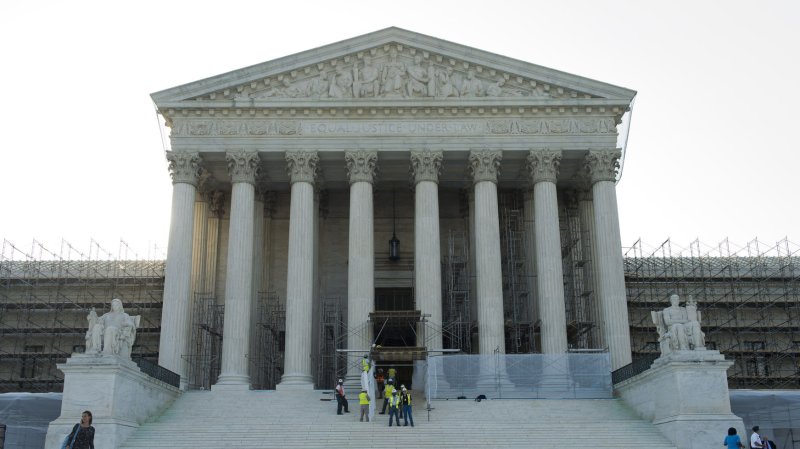The United State Supreme Court is seen on June 28, 2012 in Washington, D.C. The court is expected to release it's ruling on President Obama's health care reform law, the Affordable Care Act, later today. UPI/Kevin Dietsch |
License Photo
WASHINGTON, Oct. 16 (UPI) -- In a victory for Democrats, the U.S. Supreme Court Tuesday refused to block early voting in Ohio.
Republican Secretary of State Jon Husted had asked the high court to review an appeals court ruling allowing the early voting.
But in a one-sentence order, the high court said, "The application for stay presented to Justice [Elena] Kagan and by her referred to the court is denied." Kagan oversees the U.S. circuit that includes Ohio.
The rejection means all Ohio voters, not just the military, will be allowed to vote early on the weekend and Monday before Election Day, the Cincinnati CityBeat reported. Early voting was expected to favor Democrats.
The appeals court said Husted and individual counties can set up times and manner for the early voting. If county boards tie in voting on those conditions, Husted would be the tie-breaker, the report said.
Before going to the high court, Husted said in a statement that no matter how the justices acted, he would ensure uniformity across the state in early voting.
CityBeat said Husted announced Tuesday the polls would be open 8 a.m. to 2 p.m. Saturday, 1 p.m. to 5 p.m. Sunday and 8 a.m. to 2 p.m. Monday.
The appeals court ruling came in a lawsuit brought by the Obama campaign and Ohio Democrats challenging an order by Husted, following the 2011 enactment of a law in the Republican-dominated Legislature eliminating early voting after the Friday before Election Day.
The appeals court found state officials had "proposed no interest which would justify" the voting restriction.
Husted called the ruling "an unprecedented intrusion by the federal courts into how states run elections."















